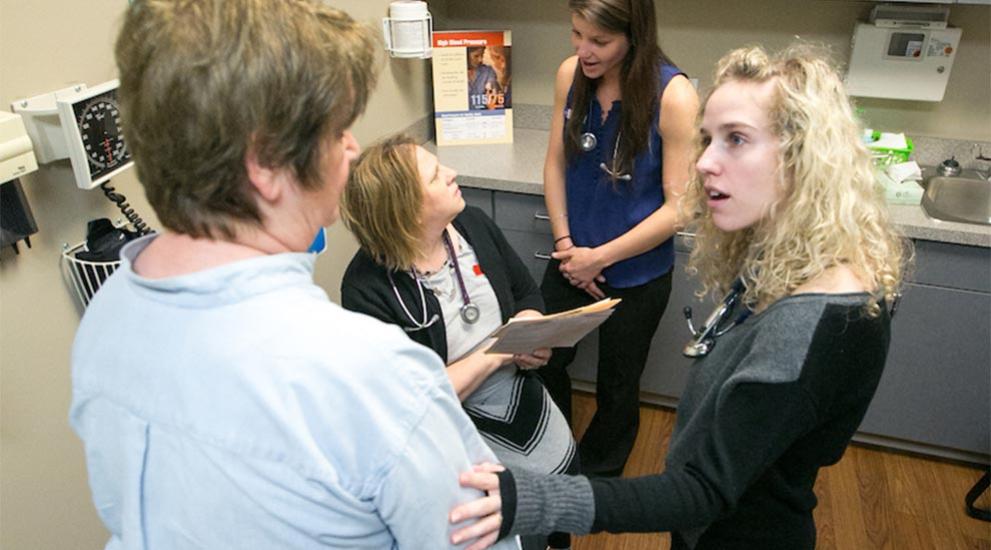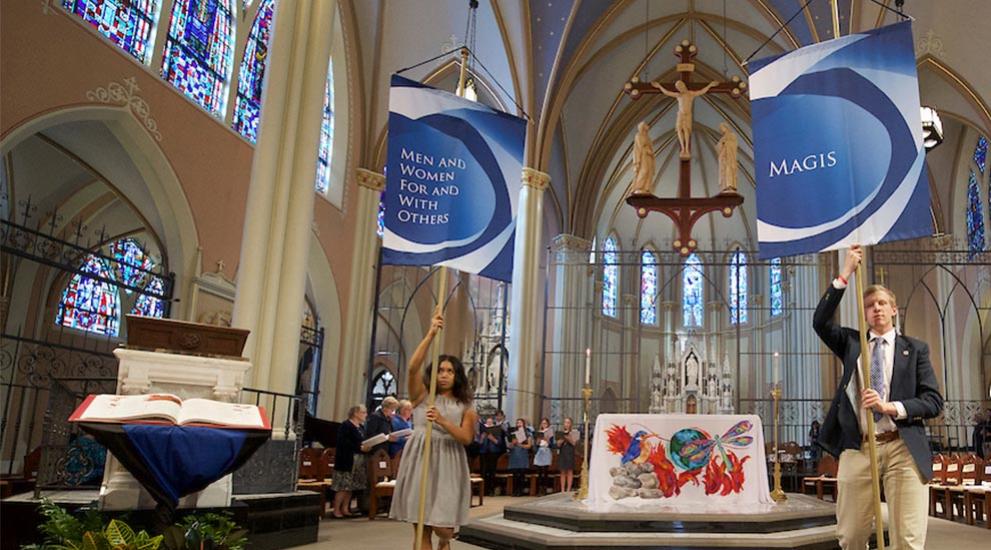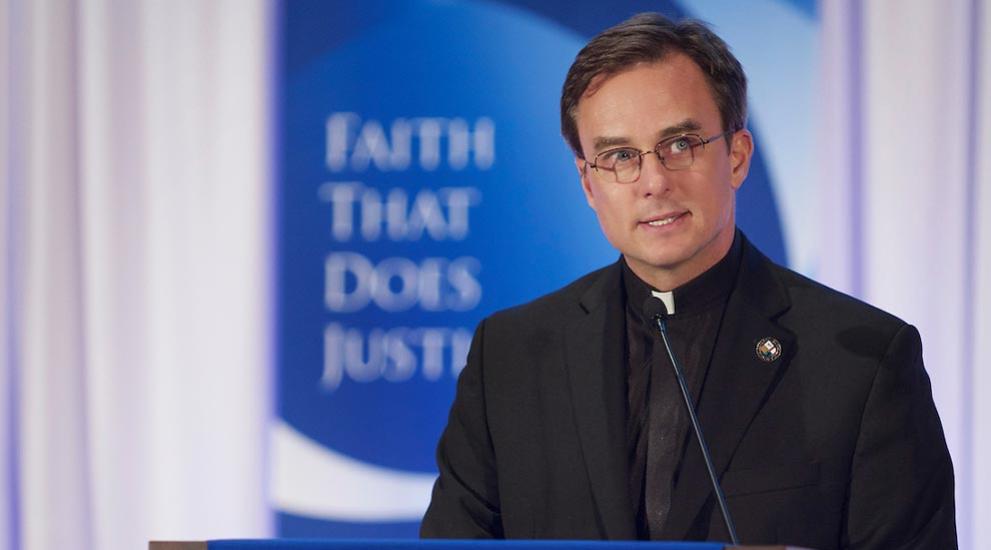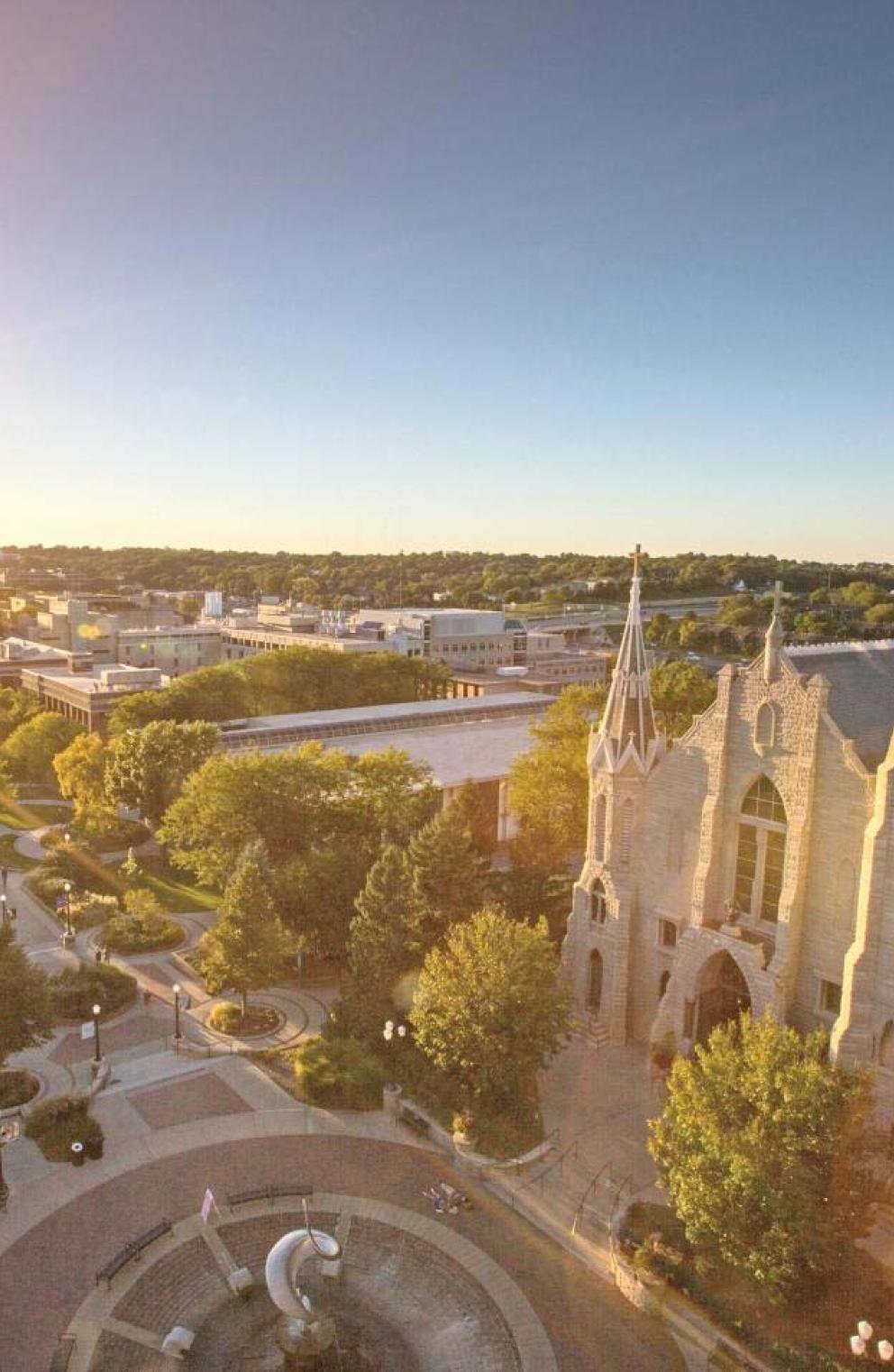Ignatian Values
Transforming our world and ourselves.
The Ignatian values described below have been identified by SPAHP as essential themes for professional formation in the health professions. They are not rules drawn from a constitution, but rather inseparable charisms derived from the lived experience of Ignatius, and thus are part of the living Ignatian tradition you will continue to shape. They are a means, not an end. They are strategies in accomplishing the transformation of our world and ourselves.
Finding God In All Things
Ignatius of Loyola taught others to experience life attuned to God’s activity in everyday circumstances. Finding God in all things is an invitation to encounter God’s presence in each moment, to become aware of God’s beauty in everything and to notice God’s action in all the events of our lives through an ongoing process of personal discernment. As such, every academic discipline provides hope to encounter the divine.


Cura Personalis
Latin meaning, “care for the person” or “personal care,” Cura Personalis is having concern and care for the personal development of the “whole person” and dedication to promoting human dignity. This includes being open to and accepting of a person’s religious and spiritual development. It also describes the type of care we give as educators and healthcare professionals. We give not only of our knowledge, expertise and skill, but also of ourselves. The care given, and the care received, is “personal care,” not “institutionalized care.”
Magis
Latin meaning the “more” or “the greater good,” Magis embodies reflection and discernment: “What is the best choice in a given situation, of several good choices, to better glorify or serve the Lord? Choosing between options encountered in life with a primary focus of being “God centered,” for example. “Magis” does not mean, “to always do or give more to the point of personal exhaustion.” It is a value central to Ignatian spirituality and encompassed by the Latin phrase “Ad Majorem Dei Gloriam,” meaning “For the Greater Glory of God.” (Motto of the Society of Jesus).


Women And Men For And With Others
A spirit of giving and providing service to those in need and recognizing that all humans have physical, emotional and spiritual needs. In 1973, Father Pedro Arrupe, SJ (previous Superior General of the Society of Jesus), put it this way: “Men and women who will live not for themselves, who cannot even conceive of a love of God, which does not include a love for the least of their neighbors, and who are completely convinced that a love of God, which does not result in justice for all, is a farce.” Father Peter-Hans Kolvenbach, SJ, also a former Superior General of the Society of Jesus, describes our goal to form leaders in healthcare who are “men and women of competence, conscience and compassionate commitment.” This value also embodies mutuality and equality among those who are serving and being served.
Faith That Does Justice
All individuals (faculty, staff and students) are encouraged to seek justice for all God’s creatures, especially the poor and marginalized. According to the Gospel, our goal is to work for the betterment of society as a whole. This is what “A Faith That Does Justice” actually means. We aim to form change agents—reflective practitioners who are able to take responsible action on moral and ethical issues and who will be change agents in society, “contemplatives in action.”


















